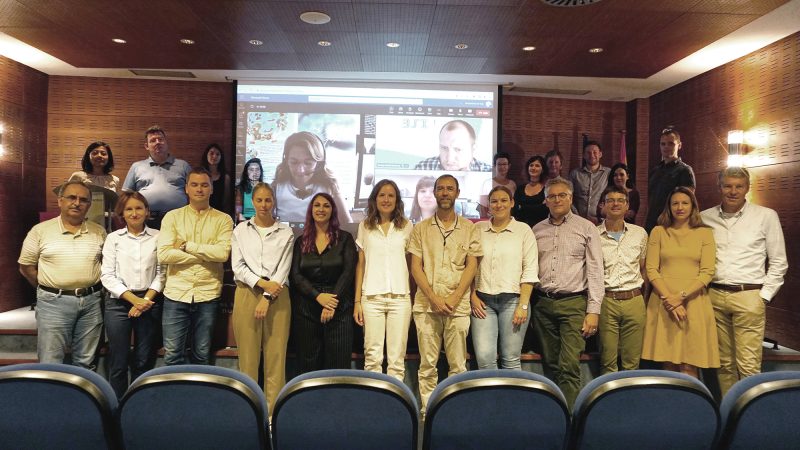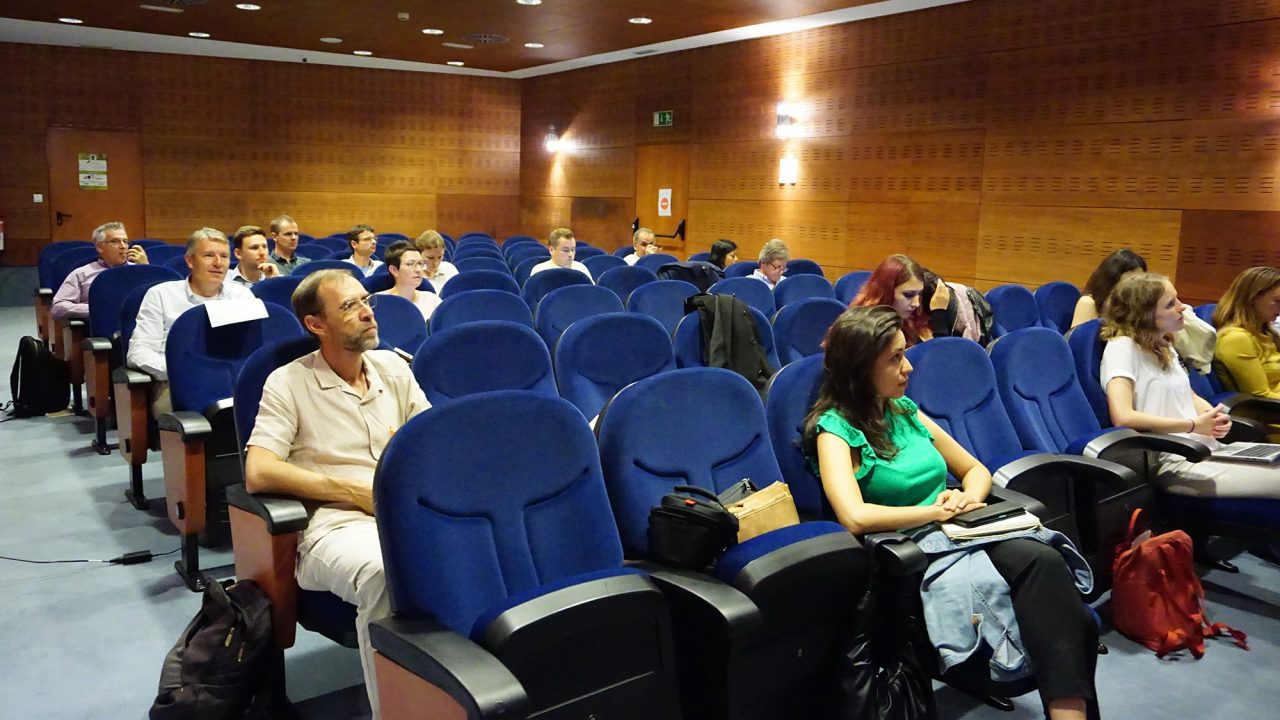Funded by the Horizon 2020 program (H2020) with 4.8 million euros. Researchers from CIM participate in the project by designing a material analysis system to determine their marine friendliness
A total of 22 researchers from nine European countries will participate in the annual meeting of the Glaukos project, which is being held today and tomorrow at the Visitors Center of the Illas Atlánticas National Park in Vigo, Galicia. Personnel from the Marine Research Center at the University of Vigo (CIM) are organizing the event, where the latest advancements of the project will be presented. The project, funded under the Horizon 2020 (H2020) call, aims to find circular solutions for the textile industry. Specifically, the Ecotoxicology and Marine Pollution laboratory (Ecotox), led by Ricardo Beiras, a professor at CIM, is the only Spanish representative in this initiative, which aims to develop biodegradable and bio-recyclable fibers and textile coatings for fishing gear and clothing.
Ecotox has developed a faster method for assessing the biodegradability and ecotoxicity of microplastics in the laboratory and mesocosms. The vast majority of eco-friendly additives and coatings for fishing gear and textiles are derived from petroleum. One of the final objectives of the Glaukos project is to produce coatings with a minimum 30% biobased content, which would be a significant advancement in this field. To achieve this, researchers from CIM have designed a material analysis system that includes three different tests: biodegradation test, mechanical degradation tests, and ecotoxicity test. Based on the results of these tests, we can classify a material as marine-friendly or not. Moreover, these tests can be extrapolated to other plastics and used in different material analyses. In this way, progress is being made towards standardizing methods for assessing the biodegradability and ecotoxicity of microplastics in marine environments.
The ultimate goal is to drastically reduce plastic pollution in the oceans, as abandoned, lost, or discarded fishing gear represents approximately 27% of all marine litter found in European seas, accounting for nearly 11,000 tons annually entering the marine environment. In addition to nets and other equipment, synthetic fibers, which make up a large part of clothing, are also a major source of microfiber pollution in marine environments, as the use and wear of garments result in fibers ending up in the sea.
Working since 2020
The project, initiated in 2020 and with a duration of four years, has a total budget of 4.8 million euros, of which the European Commission finances 4.1 million through the Bio-Based Industries Joint Undertaking (BBI JU), a public-private entity between the EU’s H2020 program and the Bio-based Industries Consortium (BIC). The grant allocated to the University of Vigo is 411,500 euros. The consortium is coordinated by the Belgian entity Bio Base Europe Pilot Plant and includes companies, associations, clusters, research centers, and universities from Belgium, the Netherlands, Denmark, Germany, Slovakia, Spain, Switzerland, Italy, and Turkey.
Source: DUVI



